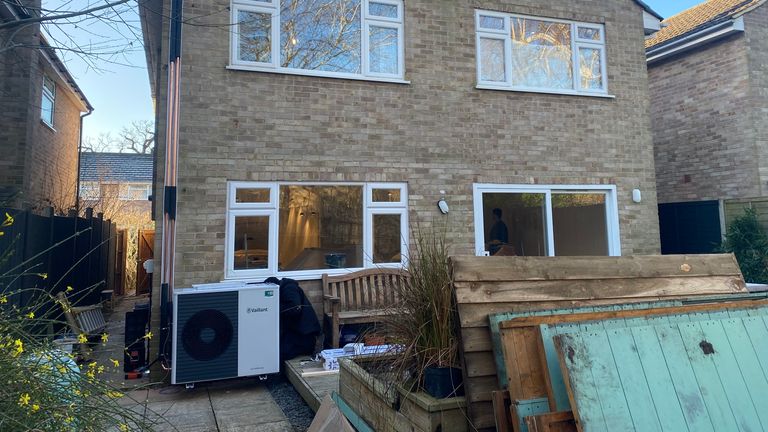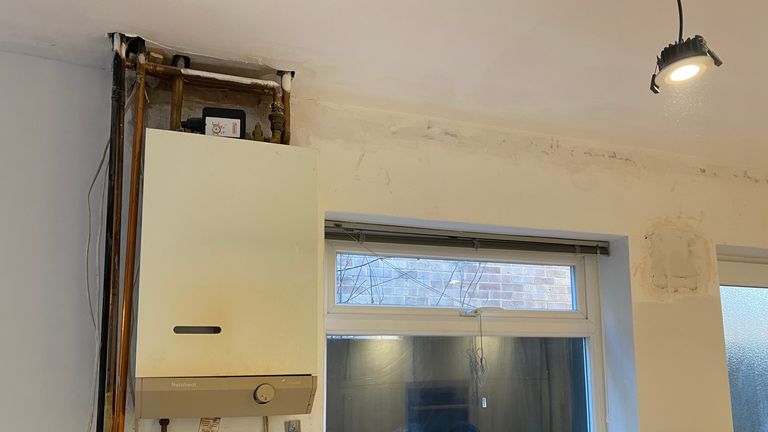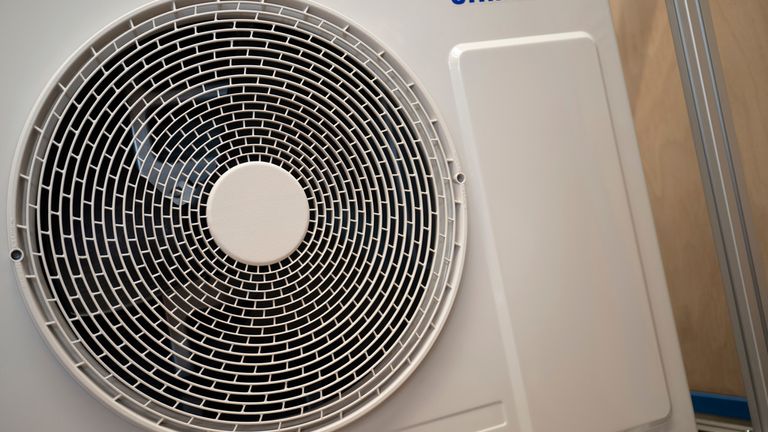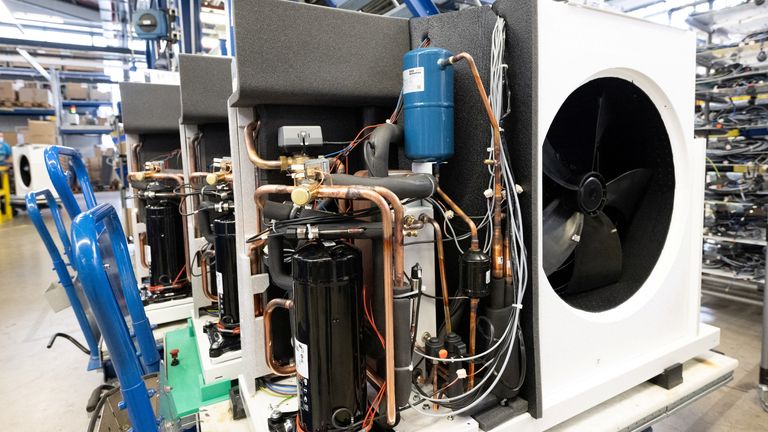‘Campaigns of misinformation’ around heat pumps says energy minister amid record number of installations | Climate News
The energy minister, Lord Callanan, has accused “vested interests” of “funding campaigns of misinformation” about heat pumps.
“I’m not going to mention names but people have a vested interest in maintaining our current supplies of gas boilers and the like”, he told The Climate Show with Tom Heap.
Heat pumps – which run on electricity and don’t emit planet-warming carbon dioxide – are likely to be the technology of choice for most homes in Britain as we move towards net zero. But they don’t always get the best press.
The government already provides a grant of up to £7,500 for households making the switch, but the upfront cost can still exceed that of a new gas boiler if other adjustments to the home are required.
We visited a home in Woking, Surrey where the gas boiler was being removed and a heat pump installed.
After the government grant, the cost of the pump, water tank, new radiators and extra insulation still came to £6,500 – a cost that’s out of reach for many.
Mike Foster is from the Energy and Utilities Alliance – a trade body which represents gas and boiler companies and lobbies on their behalf. He says the higher upfront cost is a huge barrier.
“If we alienate the consumer on the journey to net zero, my fear and the fear of people in organisations like mine is that we’ll fail to get to net zero, and that will be the biggest crime.”
He rejected accusations that the industry has been spreading misinformation.
“Far from it. Our members make heat pumps. They make boilers. They make parts for heat networks, heat interface units. So we are technology agnostic, but we want to do what is right for the consumer,” Mr Foster said.
But the government says that the cost of swapping gas for a heat pump is already coming down – and that some installations are already cheaper than a boiler replacement.
“Fairly soon, as prices come down, the installation routine becomes more efficient, the prices will be very low,” Lord Callanan said.
The UK had a record year for heat pump installations last year, with 35,000 put into our homes. But that’s still a fraction of the 600,000 a year the government is targeting by 2028.
Much of the bad press around heat pumps focuses on claims that they don’t work well with much of Britain’s housing stock and some consumers are angry about being pushed to ditch gas.
How we heat our homes has never been so controversial, so on the Climate Show this week, we went out to meet installers, customers, industry insiders, gas backers and even government ministers to separate fact from fiction and shed some light about heat pumps.
They don’t work well with old, often poorly insulated houses
Any energy system will be warmer or cheaper to run or keep if you don’t let the heat leak out – that is true for gas, oil, wood or a heat pump.
Because heat pumps work best delivering warmth at a lower level for longer periods, they might struggle to make a really badly insulated home really cosy.
Read more from Sky News:
Carbon offsetting sounds attractive – but it’s an expensive prospect
Climate-friendly mineral that could help feed the world
Heat pumps are very expensive
Typically a pump, water tank, radiators and extra insulation cost around £14,000 – reduced to £6,500 after the government grant. This is more than an average gas boiler at around £2,000-£3,000.
Undoubtedly this is a steep upfront sum for many but given heat pumps’ unique ability to deliver more heat with less power means many customers find them cheaper to run.
But this does depend hugely on the price of electricity.
Fitting heat pumps requires enormous disruption in the home
Unlike the instant hit of heat from a gas boiler, heat pumps warm a greater volume of water over a longer time period in order to regulate and maintain consistent temperatures within the home.
This means they may need bigger radiators with more surface area to deliver the same warmth to a room.
They’re also very well-matched to under floor heating though, depending on how your house is built, this can be more expensive to fit.
Heat pumps are noisy
The government says the noise should not be higher than 45 dB when being one metre away from the window of a neighbouring residential property.
This is variously described as the same volume as whispering in a library, the sound of a babbling brook and quieter than light traffic noise.
They don’t work well in cold weather
Heat pumps are very common in Scandinavian countries, in Sweden making up more than half of all home heating systems.
Temperatures there are routinely sub-zero – much lower than here. Many do have wood burning stoves too but principally for the aesthetic appeal.
Customers don’t like them
A report for the MCS, the body which certifies the technology, found that 80% of people were either satisfied or very satisfied with their heat pump, which is higher than for gas boilers.




